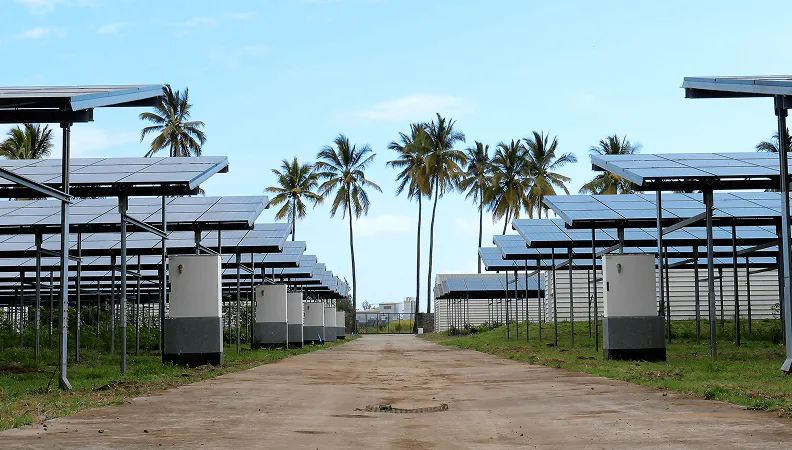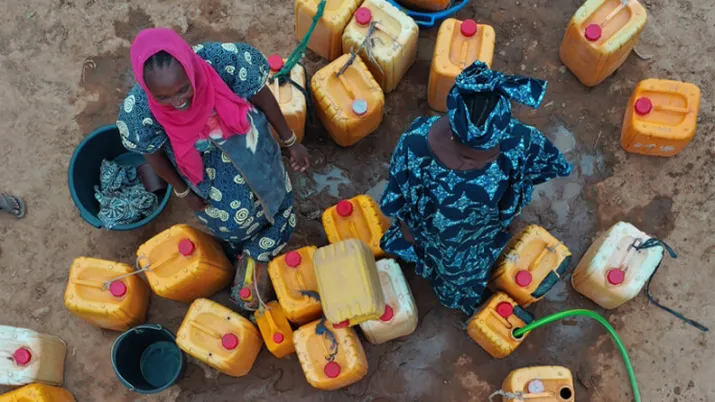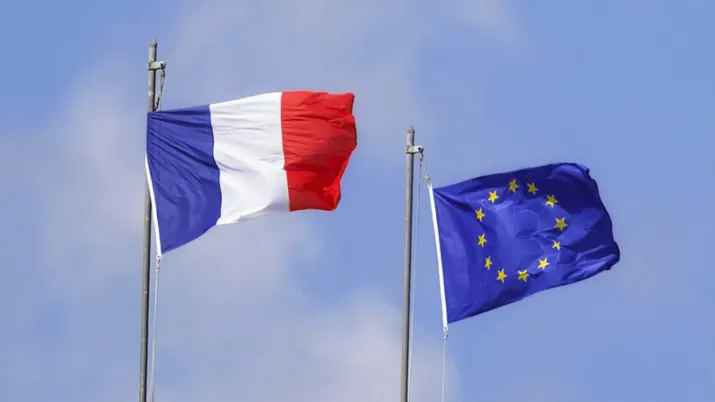Share the page
Solidarity- and Sustainability-driven Investments

This lies at the heart of our mandate. Solidarity- and sustainability-driven investments (SSIs) are financial or non-financial actions that seek to promote the sustainable development of countries through a partnership approach. They help meet people’s needs in terms of climate, health, education, transport and energy.
All the actions carried out by AFD Group to promote international partnerships are solidarity- and sustainability-driven investments (SSIs). These can be grants or loans at advantageous rates that finance official development assistance (ODA), or they can be loans taken out on market terms, equity investments, the sharing of technical expertise, knowledge production, training, or awareness-raising on international solidarity.
Their objective is to give concrete shape to projects whose goal is to improve people’s access to essential services, build infrastructure, protect the environment or strengthen public policies. These investments are part of a long-term approach and target projects at all levels: local, national, regional and international.
Building a world in common
In our interdependent world, crises in climate, health, security and migration know no borders. Without solidarity- and sustainability-driven investments (SSIs), such crises become more severe and affect the entire planet. Moreover, the cost of inaction can be considerable.
SSIs seek to prevent and curb these crises by working to achieve the Sustainable Development Goals (SDGs). The 17 SDGs for 2030 were adopted in September 2015 by the United Nations. The SDGs are interconnected, with progress in one area contributing to achieving the other objectives. This systemic approach makes it possible to simultaneously address structural problems such as poverty, hunger, lack of access to water, failures in health systems, and gender inequalities that hinder development and promote crises.
By promoting the SDGs, SSIs can have a positive impact. They reduce the risk of pandemics, in particular by building the capacities of countries to deal with health threats. They limit the risk of destabilization and conflict by strengthening justice systems, local security forces and the fight against illegal trafficking. They also help create the right conditions for each person to envisage living their life in the region where they were born, which can help reduce migratory pressure regionally, nationally and internationally.
Contributing to fair and sustainable trajectories
SSIs can be bilateral. In this case, they are made directly in a beneficiary country. They can also be multilateral, in which case the investor country contributes to an international organization (UNICEF, the Global Fund, etc.) that finances development programs.
A more solidarity-driven approach to maximizing impact
The contribution of SSIs to the long-term economic growth of our partner countries is around 1% each year. SSIs trigger virtuous development processes and dynamics that create a snowball effect on all other actors, especially the private sector. By directing private-sector financing towards the promotion of global public goods, they create a leverage effect that multiplies the impact of that financing tenfold.
SSIs also have a beneficial effect on investor countries. For example, by supporting the development of partner countries, France facilitates the opening of their markets to French companies, which are internationally recognized for their expertise in sectors such as transport, digital technology, energy transition and urban planning. Each year, AFD Group activities generate around €3 billion in economic benefits for French companies, by helping them to win new markets. Actions that promote development are also a vector of employment: 50,000 jobs are believed to be related to solidarity- and sustainability-driven investment policy, particularly in French civil society organizations (CSOs).
An aspect of countries’ international policy
Because they highlight common interests among countries and promote dialogue as a way to maximize project impact, SSIs help to bring countries closer together and facilitate long-term relationships of trust. By promoting development, SSIs form one of the three pillars of countries’ international policy, along with defense and diplomacy.
Who implements solidarity- and sustainability-driven investments around the world?
SSIs are supported by a wide range of actors, including international institutions, States, local authorities, development agencies/banks, foundations, NGOs and companies.
At the global level, various organizations play an important role. These include the World Bank (IDA and IBRD), United Nations agencies (UNICEF, UNDP, UNESCO UNHCR and others), and the European Union (EIB). Likewise for the so-called vertical funds, which are dedicated to a specific problem (e.g. the Global Environment Facility and the Global Fund to Fight AIDS, tuberculosis and malaria.
Continental or regional development banks are also key players. These include the African Development Bank (AfDB), the Asian Development Bank (ADB) and the Inter-American Development Bank (IDB).
In France, the main actors of SSIs are the ministries for Europe and Foreign Affairs, the Economy, and Higher Education and Research, as well as public institutions such as IRD, CIRAD, and of course AFD Group. French l6ocal authorities can also finance development projects, directly and sometimes thanks to AFD financing. AFD plays a pivotal role because it’s both a bank that finances projects and an agency that awards grants on behalf of the French government. It is the main French operator of SSIs.
The key role of development banks
The 536 development agencies or banks present in many countries worldwide are the counterparts of AFD Group or the Caisse des Dépôts et Consignations (France’s public long-term investor and manager of regulated savings funds), and together they account for 15% of global investment. Examples include the Foreign, Commonwealth & Development Office (FCDO) in the United Kingdom; Banco Nacional de Desenvolvimento Econômico e Social (BNDES) in Brazil; and Kreditanstalt für Wiederaufbau (KfW) in Germany.
Through instruments that combine public resources and funds raised on the financial markets, development banks respond to development needs by supporting projects deemed too risky by private donors. Because they are backed by States, they can project themselves over the long term and redirect global finance towards achieving the SDGs. Their goals are not only economic, as they also invest in fields with less immediate profitability, such as the ecological transition and social progress. Nor is their role limited to financing, as they also provide technical assistance and know-how. Since 2020, these institutions have been brought together under the “Finance in Common” initiative.



